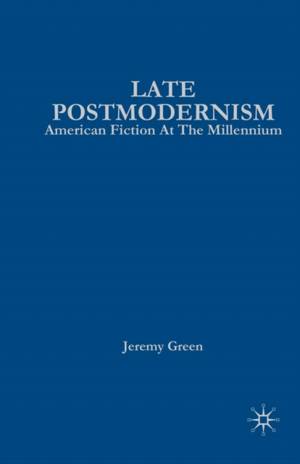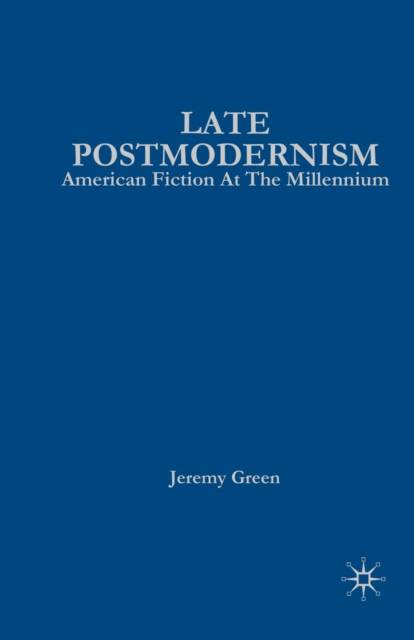
Bedankt voor het vertrouwen het afgelopen jaar! Om jou te bedanken bieden we GRATIS verzending (in België) aan op alles gedurende de hele maand januari.
- Afhalen na 1 uur in een winkel met voorraad
- In januari gratis thuislevering in België
- Ruim aanbod met 7 miljoen producten
Bedankt voor het vertrouwen het afgelopen jaar! Om jou te bedanken bieden we GRATIS verzending (in België) aan op alles gedurende de hele maand januari.
- Afhalen na 1 uur in een winkel met voorraad
- In januari gratis thuislevering in België
- Ruim aanbod met 7 miljoen producten
Zoeken
€ 83,95
+ 167 punten
Uitvoering
Omschrijving
Does the novel have a future? Questions of this kind, which are as old as the novel itself, acquired a fresh urgency at the end of the twentieth-century with the rise of new media and the relegation of literature to the margins of American culture. As a result, anxieties about readership, cultural authority and literary value have come to preoccupy a second generation of postmodern novelists. Through close analysis of several major novels of the past decade, including works by Don DeLillo, Philip Roth, Kathryn Davis, Jonathan Franzen and Richard Powers, Late Postmodernism examines the forces shaping contemporary literature and the remarkable strategies American writers have adopted to make sense of their place in culture.
Specificaties
Betrokkenen
- Auteur(s):
- Uitgeverij:
Inhoud
- Aantal bladzijden:
- 254
- Taal:
- Engels
Eigenschappen
- Productcode (EAN):
- 9781349529438
- Verschijningsdatum:
- 23/12/2015
- Uitvoering:
- Paperback
- Formaat:
- Trade paperback (VS)
- Afmetingen:
- 140 mm x 216 mm
- Gewicht:
- 299 g

Alleen bij Standaard Boekhandel
+ 167 punten op je klantenkaart van Standaard Boekhandel
Beoordelingen
We publiceren alleen reviews die voldoen aan de voorwaarden voor reviews. Bekijk onze voorwaarden voor reviews.









